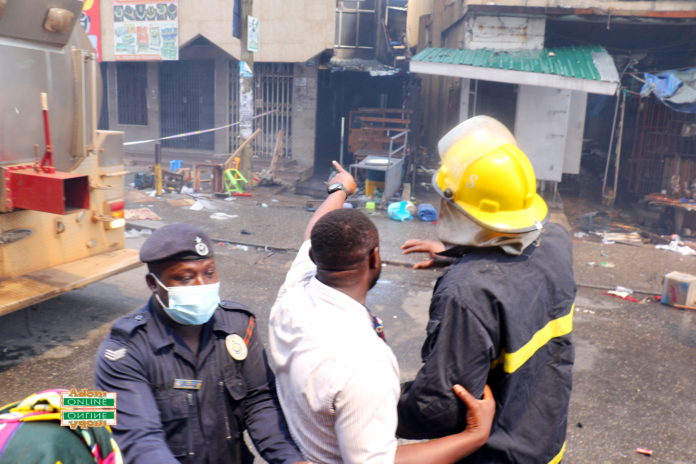The Volta Regional Command of the Ghana National Fire Service (GNFS) has again expressed concern over the high incidents of social events, such as weddings, funerals and night parties, on the streets, saying they pose a danger to its emergency and rescue operations.
The Volta Regional Commander of the service, Assistant Chief Fire Offi cer 1 (ACFO 1) Joy Ameyibor Ayim, said response teams relied on the shortest routes possible to disaster scenes.
“This is because the slightest delay in those operations can result in the loss of lives and property on epic proportions,” he explained.
He reminded organisers of such events to inform the GNFS of the times of the events and the specific streets where they would take place ahead of the events, as required by law.
“Once we know of the venues and times, we will avoid those streets when responding to fire outbreaks,” he explained.
ACFO Ayim was speaking prior to an in-service capacity training for the first batch of 20 drivers of the service in the region.
The one-day exercise was organised by the GNFS for drivers from all the 16 service stations, in collaboration with the National Road Safety Authority (NRSA) and the Driver and Vehicle Licensing Authority.
The aim was to equip the drivers with the necessary skills to keep them on top of the duty, according to ACFO Ayim.
He said response and rescue techniques were changing by the day, just like the various applications on the fire tenders.
In that regard, the Regional Fire Commander said, it was important to take the appropriate steps to ensure that rescue teams did not destroy lives while on duty to save lives.
AFCO Ayim pointed out that driving was a very important aspect of the GNFS, for which reason the people in charge of the service’s vehicles required regular in-service training to enhance their competence and safety precautions on the field.
The Volta Regional Planning Officer of the NRSA, Theresa Agyeman, said the training would focus on the drivers’ attitude and the management of challenges on the road because those areas were of great importance to safety in response to emergency situations.
The training for the second batch of the drivers will take place in a fortnight.

